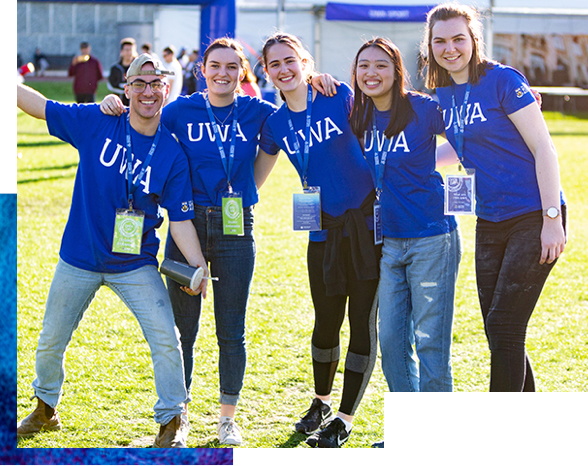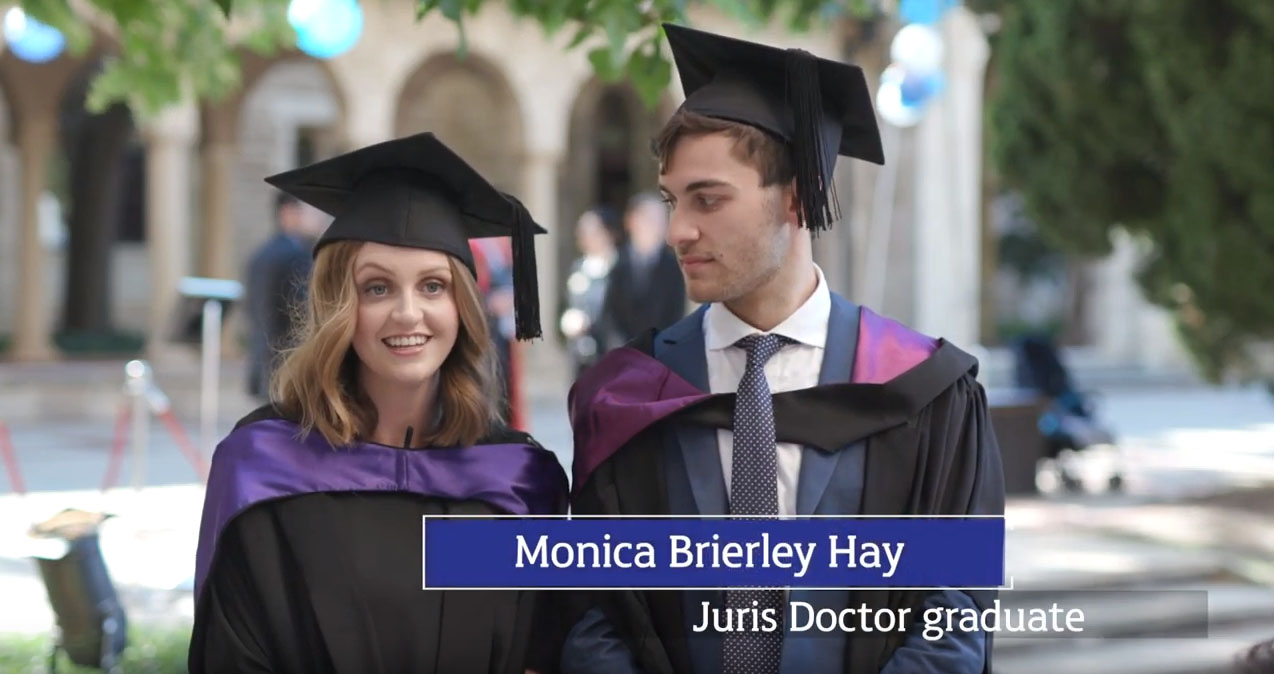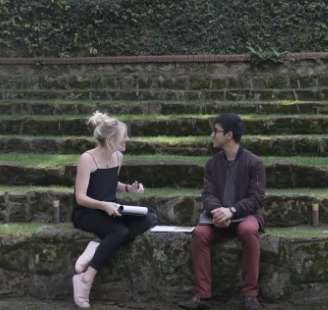Postgraduate
Graduate Diploma in International Law
Contact us
Address
Student Central
The University of Western Australia (M355), 35 Stirling Highway, Perth, Western Australia 6009
Telephone
131 UWA (131 892)
International
(+61 8) 6488 1000
Hours
Frequently asked questions
Events you may be interested in
Show more eventsCareers and further study
Explore the career opportunities available to you.
Six surprising job opportunities our alumni got with a law degree

From joining legal practices around the world and shaping policy nationally, to becoming educators and starting up businesses to address global challenges, our law graduates go places.
We caught up with six alumni to hear where their law degrees have taken them.
Career Pathways
Further Study
Master of International Law
Fees and scholarships
Learn more about the fees that apply to you for this course.
Domestic Student Fees
For Commonwealth-supported places, student contribution amounts are charged by unit, based on area of study. For a fee estimate, go to the Fee Calculator and select “I want to price my units”. Fees are subject to annual indexation. Refer to the Handbook to identify the units required. More information on how fees are calculated.
Scholarships
Scholarships are available to students from a diverse range of backgrounds, including academic achievement, financial need, educational disadvantage, leadership and community service, artistic or sporting achievements, and being from a rural or remote area.
Cost of living
Admission requirements
If you’re interested in furthering your career by studying this postgraduate course, find out the admission details below
Admission Requirements
2(a) (i) a bachelor's degree in a cognate area, or an equivalent qualification, as recognised by UWA; and (ii) the equivalent of a UWA weighted average mark of at least 50 per cent; or
3(a) (i) a bachelor's degree, or an equivalent qualification, as recognised by UWA; and (ii) the equivalent of a UWA weighted average mark of at least 50 per cent; and (iii) at least two years of relevant professional experience.
Ranking and Selection Process
English competency
English is the language of instruction and assessment at UWA and you will need to meet the English language requirements of the University to be eligible for a place.
This course has higher ELC requirements. Applicants presenting with the IELTS Academic require an overall score of at least 7.0 and no band less than 6.5. For more information visit ELC requirements.
How to apply

Ready for the next step?
Find out how to apply through our simple online application process.
We'll guide you through our entry requirements, admission pathways available to you and application deadlines for your chosen course.
We can’t wait for you to join us!
Course details
This course is subsidised for Australian residents through Commonwealth Supported Places (CSP). Visit our fee calculator for CSP rates and an estimate on your course fees.
About the course
Quick details
- Available
- Perth (Crawley campus)
- Full-time
- Part-time
- On-campus
- Applications are accepted throughout the year.
- Variable - includes intensive teaching blocks
- Postgraduate
- 21320
- This course is not available to international student visa holders
Flexibility
We understand that life is busy. That's why our postgraduate courses are designed so you can balance your work and studies. Our flexible postgraduate experience includes the opportunity to study part time, a range of units that are taught after hours, and the option to learn via intensive units. Ask our Student Central team for advice on choosing the right postgraduate route for you. Find out more here.
You'll learn to
- Understand and analyse the complex institutional structure in which international law is created, debated and applied.
- Appreciate the impact international law has on people world-wide.
- Deepen and refine oral and written analytical and delivery skills.
- Expand your knowledge of speciality sub-fields of international law.
Course structure
Postgraduate coursework degrees and combined (coursework and research) degrees comprise a number of units. Refer to the course structure for more information.
Attendance
Why study this course?
- You'll be taught a broad cross-section of units on various international law topics.
- You'll be exposed to international experts in their fields.
- You'll develop knowledge and skills marketable locally, nationally and internationally.
Western Australia's premier Law School
The UWA Law School is ranked in the top 150 law schools in the world for Law and Legal Studies (QS 2025). You will join and contribute to 90 years of excellence: we are the first law school established in WA and the fifth oldest in Australia.
Our graduates include a Prime Minister, a Governor of Western Australia, State Ministers, Justices of the Supreme Court of WA, a Young Australian of the Year, Rhodes Scholars, and more.
While we have a long and proud history, we're also a closely-knit, creative and progressive Law School, fostering critical thought, ethical scholarship and practice, a deep connection to our Indigenous past and present, and supportive student culture based upon wellbeing and inclusion.
Explainer: The difference between graduate certificates, graduate diplomas and master's degrees

Graduate certificate versus graduate diploma? Graduate diploma versus master's? Here's how to choose which postgraduate course type is right for you, depending on what your intended goals might be.



